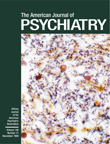Cybersuicide: The Internet and Suicide
Mr. A, a 16-year-old African American adolescent, appeared at the emergency room after attempting suicide. He has no psychiatric history but had borderline mental retardation (IQ=80). He had ingested castor oil beans (from the plant Ricinus communis). After ingesting two beans, he confessed to his mother, who brought him to the emergency room. His suicidal ideas followed a worsening of his academic performance, which also led to his being subjected to ridicule by his peers. Mr. A’s education involved using the computer, and he had regular access to the Internet. He got the idea for suicide from Web sites, although he refused to disclose them. He subsequently made an uneventful recovery.Ms. B, a 34-year-old woman with borderline personality disorder and posttraumatic stress disorder, had a history of several suicide attempts by wrist laceration and overdosing resulting in multiple hospitalizations. On this occasion, she attempted suicide by drinking several liters of water. She got the idea from the Internet, as a less painful and more convenient method of committing suicide. Ms. B did not divulge the Web site address but acknowledged that information about suicide is readily available on the Internet. She was hospitalized for observation and recovered without complications.
References
Information & Authors
Information
Published In
History
Authors
Metrics & Citations
Metrics
Citations
Export Citations
If you have the appropriate software installed, you can download article citation data to the citation manager of your choice. Simply select your manager software from the list below and click Download.
For more information or tips please see 'Downloading to a citation manager' in the Help menu.
View Options
View options
PDF/EPUB
View PDF/EPUBGet Access
Login options
Already a subscriber? Access your subscription through your login credentials or your institution for full access to this article.
Personal login Institutional Login Open Athens loginNot a subscriber?
PsychiatryOnline subscription options offer access to the DSM-5-TR® library, books, journals, CME, and patient resources. This all-in-one virtual library provides psychiatrists and mental health professionals with key resources for diagnosis, treatment, research, and professional development.
Need more help? PsychiatryOnline Customer Service may be reached by emailing [email protected] or by calling 800-368-5777 (in the U.S.) or 703-907-7322 (outside the U.S.).

